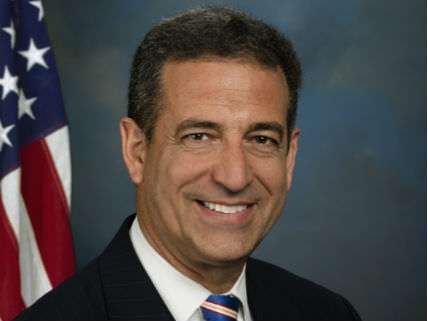Russ Feingold Also Warned Us About Secret Legal Justifications for Secret Surveillance

After the NSA surveillance stories broke last week, Matt Welch noted that Sens. Rand Paul (R-Ky.) and Ron Wyden (D-Ore.) "warned you" about the threat posed by secret legal interpretations that supposedly authorize the mass collection of personal information concerning millions of innocent Americans. Earlier today I mentioned Sen. Mark Udall (D-Colo.), another critic who has taken up this theme. Credit also should go to former Sen. Russell Feingold (D-Wis.), who in April 2008 convened a hearing on "Secret Law and the Threat to Democratic and Accountable Government." "The notion of secret law has been described in court opinions and law treatises as repugnant and an abomination," he said in his opening remarks. "It is a basic tenet of democracy that the people have a right to know the law." One of Feingold's main examples was the secret Office of Legal Counsel (OLC) memo that defined torture narrowly enough to allow waterboarding and other "enhanced interrogation techniques" practiced by the Bush administration. But Feingold also was worried about secret judicial interpretations of the Foreign Intelligence Surveillance Act (FISA):
These interpretations are as much a part of this country's surveillance law as the statute itself. Without access to them, it is impossible for Congress or the public to have an informed debate on matters that deeply affect the privacy and civil liberties of all Americans.
While some aspects of the FISA Court's work involve operational details and should not be publicly disclosed, I do not believe that same presumption must apply to the Court's purely legal interpretations of what the statute means. Yet the administration has fought tooth and nail against public disclosure of how the Court interprets the law, and has strictly limited even congressional access to some of those decisions.
As J.D. Tuccille noted this afternoon, that tooth-and-nail resistance to disclosure continues under the most transparent administration in history, despite President Obama's recent endorsement of a public debate about how exactly civil liberties should be sacrificed on the altar of security. Feingold's witnesses included Indiana University law professor Dawn Johnsen, who was Obama's first choice to head the OLC but was blocked by Republicans who did not care for her criticism of the Bush administration. Back in January 2009, I called her nomination "perhaps the most encouraging sign" that Obama would "take a more modest view of executive power" than his predecessor did. Although by inaugural naivete is rather embarrassing in retrospect, time has proven me right, since nothing more encouraging has happened since then.
To his credit, Feingold continued to issue warnings about the threat posed by secret law after Obama took office. At the July 2009 confirmation hearings for Sonia Sotomayor, Obama's first Supreme Court appointee (who herself has made some timely comments about electronic privacy), he again mentioned Foreign Intelligence Surveillance Court interpretations of FISA that are hidden from public view. "Many of them were not available to the full Congress, either, meaning that members had been called upon to vote on statutory changes without knowing how the court had interpreted the existing statutes," he said. "It's sort of hard for me to imagine a threat to national security by revealing properly redacted documents that simply refer to the legal basis for something." During the September 2009 debate about reauthorization of the PATRIOT Act, Feingold alluded to the secret interpretation of Section 215 as authorizing wide, indiscriminate data grabs, saying "Congress and the American people deserve to know" how the provision is being used.
Feingold, who like Wyden and Udall served on the Senate Intelligence Committee, lost his 2010 bid for re-election. With the major exception of campaign finance "reform," he was one of the Senate's strongest voices on civil liberties issues, providing the lone vote against the orginal PATRIOT Act in that chamber.


Show Comments (9)